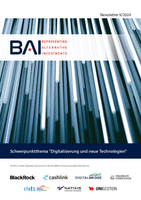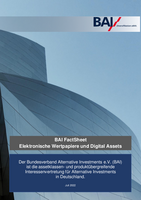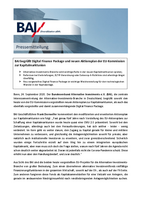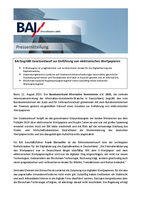The use of innovative technologies is of great importance in today's world: digital financial services have become an integral part of a future-oriented and competitive economy. The digital finance package adopted by the European Commission in 2020 aims to support the European Union in the course of the digital transformation and make Europe a stronger digital player. A particular focus is on protecting investors and customers from the risks associated with the digital transformation. The most important legal bases, current BaFin administrative practice and the various BAI statements are listed below.
The EU Commission's Digital Finance Package combines a set of proposals and measures aimed at promoting and regulating the digital financial sector in the European Union. The package was developed by the EU Commission as part of its strategy for a digital single market and includes various initiatives to modernize and strengthen the financial sector in the age of digitalization.
A central component of the Digital Finance Package is the creation of a uniform legal framework for digital financial services in the EU. This includes proposals for harmonized regulation of cryptocurrencies, digital securities and crowdfunding platforms. The aim is to improve consumer and investor protection and ensure the integrity of the financial system while promoting innovation and competition.
In addition, the package includes measures to promote cross-border access to digital financial services. Proposals are introduced to simplify and speed up identification and verification procedures to enable consumers and businesses to use financial services seamlessly across national borders.
The Digital Finance Package also focuses on promoting innovation and fintech companies. Measures will be taken to improve access to financing opportunities for startups and small businesses and reduce regulatory hurdles. This is intended to encourage the development of innovative digital finance solutions while ensuring that they meet the required compliance and risk management standards.
The EU Commission's Digital Finance Package aims to strengthen the digital finance sector in the EU, increase consumer confidence and unlock the potential of digital innovation. It is about creating a balanced regulatory framework that ensures the protection of consumers and investors while creating space for innovation and growth. Through these measures, the EU should consolidate its position as a leading player in the global digital financial sector.
Digital Finance Package Digital Finance info page of the EU Commission






